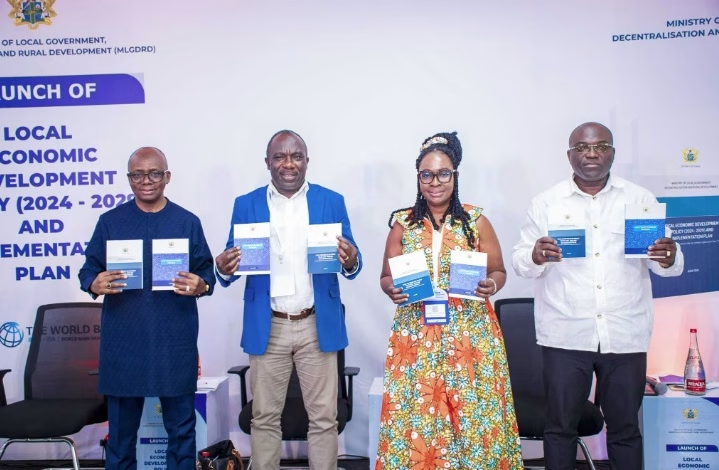Local Economic Development Policy Unveiled to Support AU Agenda 2063

- Local Economic Development Policy (2024-2029) launched.
- Policy aims to optimize local resources and create opportunities.
- Aligns with African Union Agenda 2063 for inclusive growth.
- Implementation involves training and stakeholder collaboration.
The Ministry of Local Government, Decentralization and Rural Development has launched the Local Economic Development Policy (2024-2029) and implementation plan to coordinate and facilitate development at the local level.
The five-year economic development plan requires Metropolitan Municipal and District Assemblies (MMDAs) to focus on optimizing local resources to create opportunities that enable a conducive local business environment for all actors.
Minister for Local Government, Decentralisation and Rural Development, Martin Adjei-Mensah Korsah, emphasized that the new policy implores MMDAs to make economic activities easier to undertake, adding that it is the private sector that directly creates jobs and wealth.
The policy takes cognizance of the African Union Agenda 2063, which is a global strategy to optimize the use of Africa’s resources for the benefit of all Africans.
The policy ties in with the first aspiration of the AU Agenda 2063, which is ‘A Prosperous Africa, based on Inclusive Growth and Sustainable Development’, with clearly outlined targets aimed at inclusive economic development.
Director at the Institute of Local Government Studies, Prof. Nicholas Awortwi, noted that the institute has created a map of Ghana, showing every district, their resource potentials, and what the district themselves have mapped to help in the implementation of the local economic development plan.
Prof. Awortwi explained that the institute will conduct training sessions based on the new policy, focusing on practical implementation and addressing specific needs.
Head of Industrial Art and Craft at the Ghana Export Promotion Authority (GEPA), Ms. Nelly Joana Spio-Abaidoo, urged district assemblies to ensure timely collaboration with stakeholders in implementing the policy.
She emphasized the importance of stakeholder engagement and collaboration in ensuring that the policy is implemented effectively and meets the needs of local communities.
The Ministry noted that the Local Economic Development (LED) has increasingly been recognized as a pivotal force in driving the economic dynamism of regions and communities, and the new policy aims to harness this force to promote sustained local business growth and economic empowerment for all Ghanaians.






